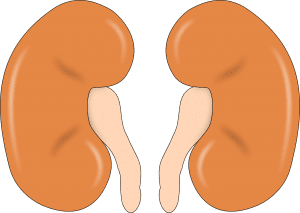Proteinuria
What is proteinuria?
Proteinuria means protein in the urine. With healthy kidneys, proteins pass through and are sent to the bloodstream. In people affected by proteinuria, proteins are sent out of the body through the urine.
While many people pass proteins through their urine, high levels may be a sign of kidney disease or nephrotic syndrome.
What are the symptoms of proteinuria?
In the early stages of this condition, people often do not notice symptoms. Later stages may bring effects such as frequent urination, shortness of breath, fatigue, nausea, vomiting, lack of appetite, muscle cramping, puffiness around the eyes, foamy and bubbly urine, and swelling in the face, feet, ankles, and abdomen.
These symptoms may also point to chronic kidney disease. It is important to see a doctor, as CKD is a serious condition that requires treatment.
What causes proteinuria?
Proteinuria usually occurs because of a temporary condition, such as dehydration, inflammation, low blood pressure, intense activity, emotional stress, or kidney stones.
In other situations, proteinuria is a sign of a much more serious condition. These conditions include chronic kidney disease, immune disorders, acute kidney inflammation, multiple myeloma, intravascular hemolysis, cardiovascular disease, kidney cancer, preeclampsia, trauma, poisoning, and congestive heart failure.
How is proteinuria diagnosed?
A urine test is used to see if there are high levels of protein. If more serious conditions are suspected as the cause, doctors will conduct additional tests.
What are the treatments for proteinuria?
Treatment for proteinuria depends on the underlying condition that causes it. If this condition receives the proper therapy, proteinuria is typically resolved.
Where can I find out more about proteinuria?
Proteinuria Articles




A New Standard for Corticosteroid Dosing for Childhood-Onset SLE with Proliferative Lupus Nephritis


Study Determines Cut-off Values for Biomarkers Which Can Increase Risk of Severe Renal Outcomes in Lupus Nephritis





